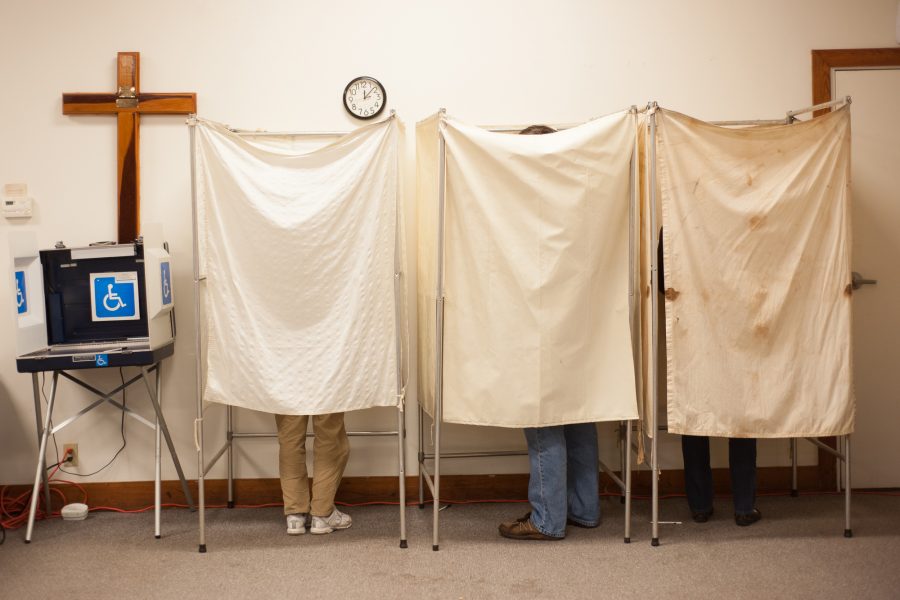Millennials experience stress in high numbers as election day approaches
Voters stand in booths at the Salvation Army in Champaign, on election day, Tuesday, Nov. 6, 2012.
Oct 26, 2016
For many millennials, this is the first United States presidential election in which they are eligible to vote and they are not taking the responsibility lightly.
Over half of Americans are more stressed out now than when the 2016 presidential election cycle began. Fifty-two percent of Americans claim that the election is a “very or somewhat significant source of stress,” according to a survey done by the American Psychological Association.
Millennials were the second-largest group to report higher levels of stress, with 56 percent reporting high stress.
The study also highlighted that political affiliation is not a key factor in rising stress levels, since both Republicans and Democrats produced similar results. Fifty-five percent of registered Democrats reported significant stress, similarly 59 percent of registered republicans that reported stress.
Dr. Aleksander Ksiazkiewicz, an assistant political science professor at the University, believes the rise of election-related stress can mostly be attributed to how little there is to like about the candidates.
Get The Daily Illini in your inbox!
“The candidates from both parties have historically low levels of likability,” Ksiazkiewicz said. The ratings “may indicate anxiety among some voters who anticipate being dissatisfied regardless of who wins the election.”
The political polarization between Republicans and Democrats has increased over the years, which could be a long-term cause of election-related stress.
“There is some evidence that ‘negative voting,’ where an individual’s vote choice is against a candidate rather than for a candidate, is playing a greater role this year than in some previous elections,” Ksiazkiewicz said. “Again, since this departs from how we usually think of elections as a proactive choice for who should lead the country, this may be a source of stress for some voters.”
One study, conducted by the Pew Research Center, shows that there is a growing dissatisfaction with both Donald Trump and Hillary Clinton. The study draws on the data findings that people are more likely to vote for a candidate simply because they dislike the other candidate.
Thirty-three percent of Trump supporters and 32 percent of Clinton supporters are voting in opposition to the other candidate, according to the Pew study.
The use of social media is also a contributing factor to what some psychologists are calling “Election Stress Disorder.”
Thirty-eight percent of adults reported that encountering political posts online is a stressor. Adults who use social media are also more likely to face an increase in election-related stress or anxiety.
Yuxin Shi, the vice president of Stress Management Peers organization on campus, said no students have come to talk about election-related stress, but she does notice the stressor amongst her international peers.
The stress mostly stems from the uncertainty of the future of immigration, since both candidates have dramatically different plans.
“The worry has created some level of anxiety and confusion, especially for those who plan to stay and have career development in the U.S. after school,” Shi said.
There are currently 10,700 international students enrolled at the University, according to the Office of Inclusion and Intercultural Relations.
Most of the international students do not have voting rights in the United States, so many are unable to participate in the democratic process. Shi said the inability to cast a vote in the election is a cause for stress.
Stress management coordinator at McKinley Health Center Jennifer Carson recommends that students who are facing an increase in stress should schedule an individual appointment with either her or the Counseling Center.
Carson also said students should have a healthy routine in place in case they experience a rise in stress, which can take a toll on students’ overall well-being.
“Generally when someone’s stress levels are higher, whether it is due to the elections or other concerns, they are more susceptible to illness,” Carson said. “Making sure one consistently is meeting their personal needs can help prepare them for times when stress levels rise so they can cope better and recover more quickly.”






